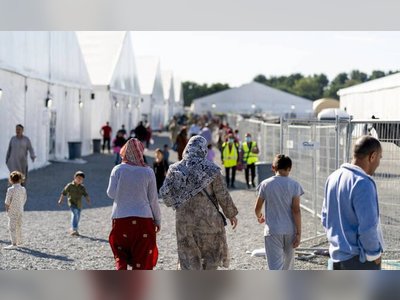
Saudi Delivery Sector Sees Record 101 Million Orders in Q2 Amid Logistics Push
Riyadh's delivery sector accounted for 45.04 percent of total delivery volume, followed by Makkah at 21.17 percent and the Eastern Province with 15.87 percent.
Saudi Arabia’s delivery sector processed more than 101 million orders in the second quarter of 2025, driven by surging e-commerce demand and ongoing investments in logistics infrastructure, official data showed.
According to the latest report from the Transport General Authority, Riyadh accounted for 45.04 percent of the total delivery volume, followed by Makkah at 21.17 percent and the Eastern Province with 15.87 percent.
Other regions contributed smaller shares to the total delivery volume in the second quarter, including Al Madinah at 4.65 percent, Asir at 3.56 percent, and Al Qassim at 2.89 percent.
The growth in delivery activity coincides with broader momentum in Saudi Arabia’s transport and logistics infrastructure.
In the first half of 2025, Saudi Arabia Railways recorded over 7.9 million passengers across 21,205 passenger train trips, an 8 percent increase from the previous year.
The rail network also supported the 1446 Hajj season, transporting over 4.3 million pilgrims via the Haramain High-Speed Railway and nearly 5.1 million pilgrims through the Mashaer Train network.
On the freight side, SAR moved more than 14.9 million tonnes of cargo during the same period, marking a 13 percent year-on-year increase.
These logistics gains were reinforced by Saudi Arabia’s active participation in key industry events and strategic partnerships with local and international firms.
SAR’s involvement in major exhibitions and forums, alongside collaborations with companies such as STC, Lucid, Turkish Airlines, and SDAIA, underscores the Kingdom’s push to elevate transport capabilities and digital integration.
Additionally, SAR’s recognition through ISO certifications and national quality awards reflects the growing emphasis on service excellence and governance in the sector.
Supported by regulatory reforms, digital transformation, and infrastructure investment, the National Transport and Logistics Strategy aims to leverage Saudi Arabia’s strategic location to enhance multimodal connectivity and position the Kingdom among the world’s top ten in the Global Logistics Performance Index.
According to the latest report from the Transport General Authority, Riyadh accounted for 45.04 percent of the total delivery volume, followed by Makkah at 21.17 percent and the Eastern Province with 15.87 percent.
Other regions contributed smaller shares to the total delivery volume in the second quarter, including Al Madinah at 4.65 percent, Asir at 3.56 percent, and Al Qassim at 2.89 percent.
The growth in delivery activity coincides with broader momentum in Saudi Arabia’s transport and logistics infrastructure.
In the first half of 2025, Saudi Arabia Railways recorded over 7.9 million passengers across 21,205 passenger train trips, an 8 percent increase from the previous year.
The rail network also supported the 1446 Hajj season, transporting over 4.3 million pilgrims via the Haramain High-Speed Railway and nearly 5.1 million pilgrims through the Mashaer Train network.
On the freight side, SAR moved more than 14.9 million tonnes of cargo during the same period, marking a 13 percent year-on-year increase.
These logistics gains were reinforced by Saudi Arabia’s active participation in key industry events and strategic partnerships with local and international firms.
SAR’s involvement in major exhibitions and forums, alongside collaborations with companies such as STC, Lucid, Turkish Airlines, and SDAIA, underscores the Kingdom’s push to elevate transport capabilities and digital integration.
Additionally, SAR’s recognition through ISO certifications and national quality awards reflects the growing emphasis on service excellence and governance in the sector.
Supported by regulatory reforms, digital transformation, and infrastructure investment, the National Transport and Logistics Strategy aims to leverage Saudi Arabia’s strategic location to enhance multimodal connectivity and position the Kingdom among the world’s top ten in the Global Logistics Performance Index.











